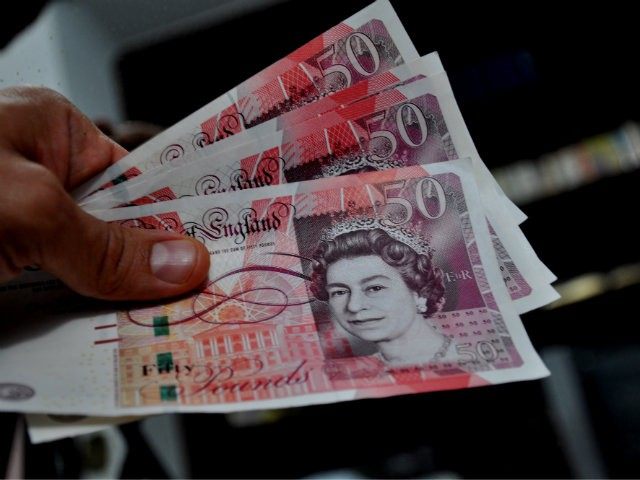Britain’s poorest 10 percent spend nearly half of their income on taxes. At the other end of the scale, the wealthiest 10 percent spend 35 percent of their income on taxes, but on average pay out more than £30,000 more in taxes than they receive in benefits. New research also showed large geographical redistribution, from London and the south and east of England to the rest of the UK.
The research, conducted by the TaxPayers’ Alliance (TPA) found that, on average, the poorest households spend more of their income on tax than any other group, shelling out 47 percent of their gross income on tax. The figure includes the 13.9 percent on VAT alone, 7.2 percent on council tax, and 5.6 percent on ‘sin taxes’ such as alcohol and tobacco duties.
Meanwhile, Britain’s richest ten percent may pay less as a percentage of income, but they are carrying the heaviest burden in terms of redistribution, paying on average £30,023 more into the system each year than they get back. The analysis, which used data from the Office of National Statistics also found that, before taxes and benefits, the most well off have an income 27 times higher than the lowest income households, but that after taxes and benefits are taken into account, this dropped to just 5.4 times.
A spokesman for the TPA said: “much of the rhetoric around “lifting people out of taxation” or “ensuring that those with the broadest shoulders bear more of the burden” is based more on perception than reality. The honest truth is that consumption and property taxes continue to hit the poorest families hardest, whilst the top 10 per cent of earners pay in far more to the Treasury than they receive through state services.”
Overall, the average household in Britain pays £274 more in taxes than they receive in benefits. Poor households receive more in benefits than the rich: on average the poorest receive £7,691 in benefits in kind, whereas the richest 10 percent receive £4,980 on average.
Geographical differences are also stark: those living in the northeast of England receive on average £3,175 more in benefits than they pay in taxes, whereas those living in London paid out £4,119 more in taxes than they received.
Jonathan Isaby, chief executive of the TPA said “This analysis shows how pernicious our tax burden has become. Not only does the tax system hit the poorest hardest, but those at the top are already contributing far more than anybody could reasonably describe as their “fair share.” Our tax system is neither progressive nor fair, and we need radical reform as well as necessary savings if the way we tax and spend is to become fit for purpose.”
A Treasury spokesman said: “At the autumn statement the government published the most complete, rigorous, and detailed record of the impact of this government’s policies on households.
“This distributional analysis shows that in 2015-16 the 20% of households with the lowest incomes will receive almost five times as much support from spending on public services and welfare as they contribute in tax.
“But the government also realises that the effects of the great recession are still being felt, which is why we have taken continued action to help, including by lifting 2.95 million out of paying income tax altogether.”
The TPA has called on all political parties to commit to lowering VAT, the least progressive of taxes. By the same token, they also recommend reducing the rates on sin taxes, which overwhelmingly hit the poorest the hardest. Further calls for taxation aimed at the richest should likewise be resisted, as the government ought to concentrate on cutting spending to reduce the deficit, rather than relying on taxing their way out of debt.
They also recommend that National Insurance thresholds be brought in line with income tax thresholds to lift the lowest paid out of all income related taxation, as a first step to abolishing NI altogether.

COMMENTS
Please let us know if you're having issues with commenting.